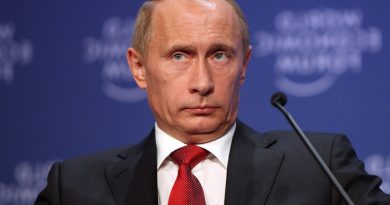What Are the Panama Papers, and Why so Few American Names?
About one year ago, an anonymous source contacted the German newspaper Süddeutsche Zeitung and provided them with 2.6 terabytes of data—potentially the biggest leak in history—about the actions of Mossack Fonseca, a Panamanian law firm that allows people to set up shell companies in order to avoid paying taxes. Süddeutsche Zeitung spent a year working with the International Consortium of Investigative Journalists to analyze the information contained within the leak, and the two organizations are now beginning to release it.
A shell company is a company a person sets up to hold money while hiding their true identity. There are some legitimate uses for this; for example, if you’re famous and you don’t want people stalking you, you can set up a shell company to buy a house for you. However, the secrecy involved in these transactions makes them appeal to people who want to hide their money for illicit reasons. If you hide a million dollars under “Money Hiding LLC,” you won’t have to pay taxes on them—and if you obtained that money through some sort of fraud, nobody will wonder how you got it, because they won’t know you have it.
On April 3rd, Süddeutsche Zeitung broke the news about the leak. Ukrainian president Petro Poroshenko, who campaigned on a promise to sell the multimillion-dollar candy company he owned and focus on running the country, was found to have maintained ownership of the company, hiding it under a shell corporation. Sigmundur Gunnlaugsson, the president of Iceland, was also accused of foul play, and denied the allegations but stepped down on April 6th due to popular pressure. Juan Pedro Damiani, who served on FIFA’s ethics committee, also appeared in the documents, as well as other top FIFA officials and several prominent soccer players.
Another key figure implicated in the leak is Russian president Vladimir Putin. While Putin himself was not named, some of his close associates were found to have stored over two billion dollars offshore through shell companies. A spokesperson for the Kremlin dismissed the allegations, claiming they were an attempt to spread “Putinphobia” and American propaganda.
Since the International Consortium of Investigative Journalists is funded by American organizations, and relatively few of the people named so far in the leak are from the United States, some theorize that they are indeed being paid to smear other countries and make the U.S. look good in comparison. Craig Murray, the former British ambassador to Uzbekistan, wrote in a blog post that “the filtering of this Mossack Fonseca information by the corporate media follows a direct western governmental agenda,” as much of the information is being kept private by media organizations.
However, so far, only 151 out of 11.5 million documents have been released to the public. So it is perfectly possible that people from the United States and other, powerful Western countries will be exposed once journalists analyze and publish more documents. “Just wait for what is coming next,” one Süddeutsche Zeitung editor warns.
It may also be possible that Americans who evade taxes generally choose to do so through other firms. In the United States, people who wish to evade taxes or hide money don’t have to do so offshore. It’s much easier for them to do so in the U.S. Here, anyone can create a completely anonymous company, and there are plenty of thriving firms here that help people do just that.
Since the documents are entirely controlled by a few organizations, there’s no way to know that they aren’t hiding something important. Hopefully, they will soon release all the Panama Papers to the public. However, at this point in the process, only 0.0013% of the documents have been released, so it’s a bit early to start pointing fingers. And even if every single byte of information is published, this leak only tells us about one law firm out of many. Among the powerful, corruption runs far deeper than any of the rest of us may ever know.





